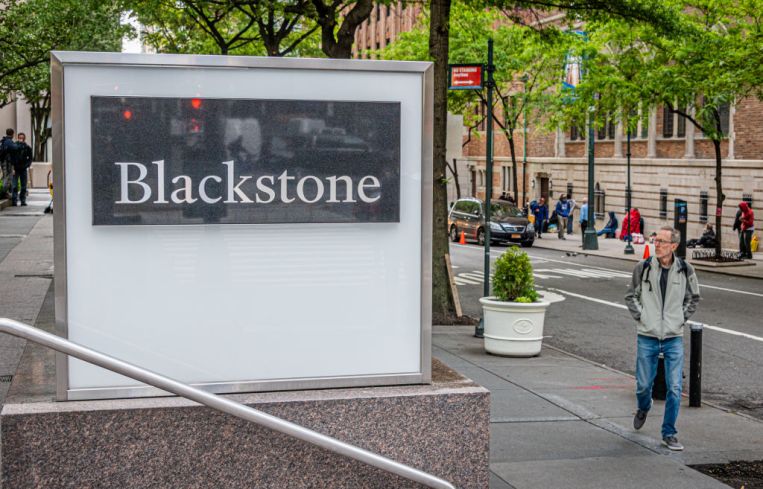Sunday Summary: Blackstone: Yeah, We Just Raised $30+ Billion. No Big Deal.
By The Editors April 16, 2023 9:00 am
reprints
Despite an ugly banking crisis, despite all the pending (and current) commercial foreclosures, despite the warning signs of recession, and despite job losses in the real estate sector, if your company name is “Blackstone,” you’re doing just fine.
Because last week its latest real estate fund — Blackstone Real Estate Partners X (BREP X) — raised an ungodly $30.4 billion.
And this should bring home two important lessons: Not all real estate is created equal. And not all real estate is doing poorly.
Blackstone is planning to throw this money at logistics, rental housing, lab offices and data space — pretty much everything except office. And it’s not the only one. A lot of savvy investors with cash to park in real estate have realized that the industry does not begin and end with New York office skyscrapers.
After all, it’s not as if manufacturing and land brokers are twiddling their thumbs. Gobs of government largesse is being poured into the sector thanks to the Inflation Reduction and CHIPS and Science acts. This legislation promises to build electric vehicle and battery factories, as well as other industrial and logistics properties. (Although, just as a warning, we did see a report this week that the pace of industrial leases in New York had slowed to pre-pandemic levels. Still, the numbers were decent with asking rents rising 2.1 percent over last quarter and availability at 6.5 percent. And Blackstone’s subsidiary Link Logistics pocketed a cool $262.5 million for an 851,131-square-foot industrial portfolio in Southern California last week.)
Plus, demand for large “hyperscale” data centers is anticipated to grow in 2023, according to a recent JLL report, with 314 such sites currently under construction globally.
And multifamily got some pretty good news, too: 21 of the top 30 metro areas saw rents rise in March, according to Yardi Matrix, and the national occupancy rate is a high 95.2 percent. (MSCI, however, issued a separate report that was less rosy: “Apartment deal volume and prices fell at a fast clip in February. Declines have been underway over a number of months now, but the scale of recent drops is starting to bring the pace of deal activity below normal levels.”)
Even retail is not having a terrible go of it. Manhattan saw 2.8 million square feet of retail space rented in the first quarter of this year with asking rents rising 3.7 percent, mostly thanks to food (the sort, say, like across the river in Brooklyn where the Drake/Samuel L. Jackson-backed Dave’s Hot Chicken landed a lease) and fashion brands.
So, yes, it’s not so crazy that Blackstone raised $30 billion for real estate.
Unless…
That last statement comes with a big caveat: Office. It’s doing horribly.
If you look at the major office REITs, for example, their stocks have essentially fallen off a cliff over the last 12 months.
Heavy hitters like the Paramount Group have dealt with investor takeover attempts, while others such as Vornado Realty Trust have shelved plans that were decades in the making, like its $7 billion reinvention of the area around Penn Station.
The thing that’s most jarring is there’s no end in sight.
“If we didn’t have this work from home situation happening, I’d say it’s a blip on the horizon,” David Auerbach, managing director of Armada ETF Advisors, told Commercial Observer. “But we know that work from home is here to stay, no matter how many ways these guys try to slice it and dice it.”
The Biden administration is at least doing its part to bring the federal workforce back to its offices. A day after an April 12 letter from the Real Estate Roundtable was sent to the U.S. Senate calling for an end to telework rules, Shalanda Young, director of the Office of Management and Budget, directed dozens of federal agencies to implement new workplace rules that would increase in-person work attendance by this spring. (However, there will remain some flexibility on work from home.)
“This is certainly good news from the administration, but it’s also not fully reflective of a pre-pandemic set of workplace rules for the federal government,” Jeffrey DeBoer, president and CEO of the Real Estate Roundtable, told CO. “So we welcome what they’ve done and we look forward to working with them as they further perfect it.”
And we’re not exactly turning to drink or recreational cannabis yet. There were some leases of note last week. In D.C. UBS grabbed 23,644 square feet at the under-construction 17xM. And Related scored three major tenants — J.F. Lehman & Company, Milbank and Liberty Mutual — in Hudson Yards for a total of 77,000 square feet.
Splitsville
We heard the unfortunate news that Citadel, Ken Griffin’s financial behemoth, is parting ways with Sterling Bay, which was supposed to be designing Citadel’s beachfront headquarters in Miami at 1201 Brickell Bay Drive.
That’s too bad.
But if Citadel is looking to partner with a developer maybe they should call on The Georgetown Company, which just scooped up T.J. Gottesdeiner, one of the foremost architects in the world, as a senior adviser.
See you next week!



